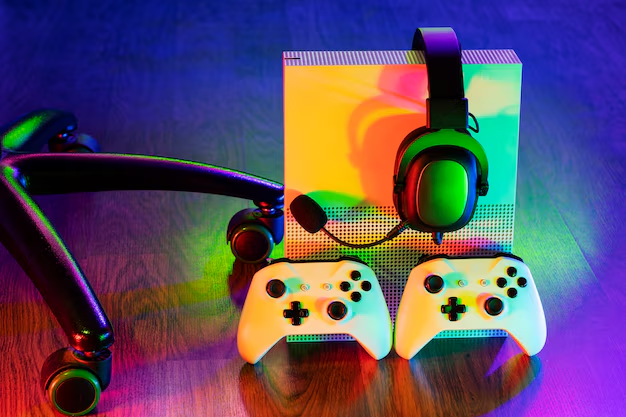The Psychology of Gaming: How Games Affect Our Minds
Video games have evolved from simple, pixelated pastimes into complex, immersive experiences that can shape our emotions, cognition, and behavior. With millions of people playing games across the globe, the psychology of gaming has become an area of great interest for researchers and mental health professionals. Games can be incredibly engaging and provide players with a sense of accomplishment, social connection, and even relaxation. However, like any form of entertainment, they also come with potential downsides that can impact our minds in both positive and negative ways.
1. The Impact of Games on Emotions and Mood
One of the most immediate psychological effects of gaming is its influence on a player’s emotions. Games can evoke a wide range of emotions, from intense joy and satisfaction to frustration and anger. Many games are designed to tap into players’ emotional responses, providing challenges that can trigger feelings of accomplishment when completed successfully. These emotions are often tied to dopamine, a neurotransmitter associated with reward and pleasure.
For example, completing a difficult quest or leveling up in a role-playing game (RPG) can trigger a rush of dopamine, which reinforces the player’s desire to continue playing. However, if players encounter repeated failure or frustration, they might experience negative emotions, such as anxiety or anger, which can affect their mood.
2. Cognitive Benefits of Gaming
While some people might associate gaming with mindless entertainment, research has shown that certain types of games can enhance cognitive abilities. Games that require strategic thinking, quick reflexes, or puzzle-solving can improve various aspects of cognitive function, including:
- Attention and Focus: Action games, especially first-person shooters or real-time strategy games, require players to focus their attention on multiple things at once. This can improve a player’s ability to concentrate and stay focused in other tasks.
- Problem Solving and Critical Thinking: Puzzle and strategy games, such as Portal or Chess, can sharpen problem-solving skills by encouraging players to think creatively and critically about their choices.
- Memory: Many games, especially RPGs, require players to remember complex storylines, rules, and character traits. This type of memory training can have a positive effect on memory recall in real-life situations.
- Multitasking: Some games require players to manage multiple tasks simultaneously, such as navigating a character, monitoring health stats, and making strategic decisions. This can improve multitasking abilities.
3. The Social Aspect of Gaming
One of the most prominent features of modern gaming is its social component. Multiplayer online games, such as Fortnite or World of Warcraft, allow players to connect and interact with others around the world. This social interaction can have both positive and negative effects on our minds.
- Positive Effects: For many people, gaming provides an avenue for social connection, especially for those who might struggle with face-to-face interactions due to social anxiety or geographical limitations. Online gaming communities can create a sense of belonging and camaraderie, where players work together toward common goals, offering emotional support and making friends.
- Negative Effects: On the flip side, excessive gaming can lead to social isolation if it replaces in-person interactions or becomes an escape from real-life problems. In extreme cases, online interactions may be toxic or lead to cyberbullying, which can harm players’ mental well-being.
4. The Dark Side of Gaming: Addiction and Escapism
For some individuals, gaming can become addictive. Video game addiction has been recognized by the World Health Organization (WHO) as a mental health condition called “gaming disorder.” Players who are addicted to gaming may prioritize games over other important aspects of their life, such as work, relationships, or personal health.
The addiction can have significant psychological consequences, including:
- Escapism: Games can provide a temporary escape from real-world problems, but when used excessively, this can lead to avoidance behavior, where players withdraw from facing real-life challenges. This can worsen mental health issues, such as depression or anxiety.
- Sleep Disruption: Many gamers, especially those who engage in late-night gaming sessions, suffer from poor sleep hygiene, which can negatively impact cognitive function, mood, and physical health.
- Desensitization to Violence: Games that involve violent themes or actions, such as first-person shooters, have sparked debates about whether gaming can desensitize individuals to real-world violence. While the evidence on this is mixed, some studies suggest that excessive exposure to violent video games might increase aggressive thoughts and behaviors, though this doesn’t necessarily mean it will cause violent actions in real life.
5. Gaming and Mental Health: A Double-Edged Sword
Video games can have therapeutic effects in some contexts. For example, games can help reduce stress and anxiety by providing a way to unwind and engage in a fun and immersive activity. Games that involve exploration, storytelling, or creativity, such as Stardew Valley or Journey, can offer players a calming experience that improves their overall mental state.
Additionally, certain video games have been used in therapeutic settings to help individuals with conditions like PTSD, autism, or ADHD. Games that focus on mindfulness or relaxation can also help manage stress.
However, when gaming becomes an unhealthy coping mechanism or is used excessively, it can exacerbate mental health issues. It’s crucial to strike a balance between gaming and other aspects of life to ensure that it doesn’t negatively impact mental health.
6. The Future of Gaming and Mental Health
As the gaming industry continues to grow, researchers are paying more attention to how gaming affects mental health. With the rise of virtual reality (VR) and augmented reality (AR) games, the immersive nature of gaming could further influence our psychological well-being. Future developments in gaming could lead to new ways of treating mental health issues, such as VR therapy, but also raise concerns about the potential for addiction or escapism.
Ultimately, the psychology of gaming is complex and multifaceted. While games can provide a source of entertainment, learning, and social connection, they also come with risks that need to be managed. The key to healthy gaming lies in moderation, mindfulness, and understanding how different types of games affect our minds in various ways.
Conclusion
Games have the power to shape our minds in ways we are only beginning to understand. Whether they’re enhancing our cognitive abilities, providing emotional relief, or fostering social connections, video games are an integral part of modern life. As we continue to explore the psychological effects of gaming, it’s important to approach it with balance and awareness, ensuring that gaming remains a positive force in our lives.

